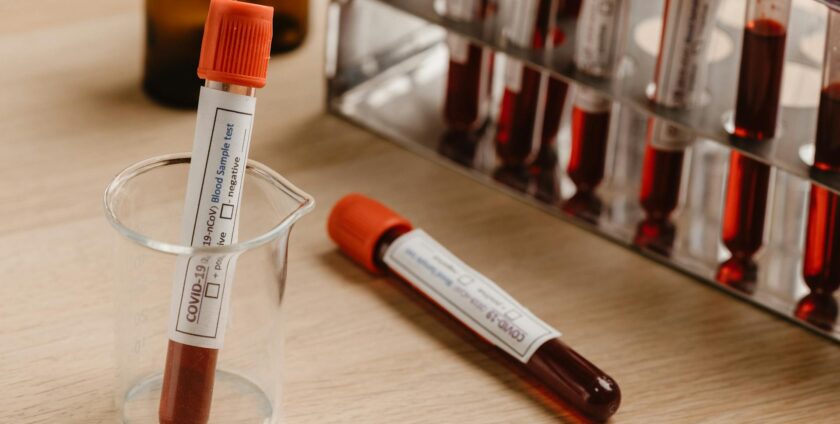
Packed Cell Volume (PCV) is an essential measure when evaluating your blood’s health. Whether you’re concerned about anemia, dehydration, or any blood-related condition, understanding PCV levels can help guide you in the right direction. At JITM Diagnostics, we prioritize making medical information easy to understand, empowering you to stay informed and proactive about your health.
What is Packed Cell Volume (PCV)?
PCV, also known as the hematocrit test, measures the proportion of red blood cells in your blood. This percentage indicates how well your blood can carry oxygen throughout your body. For instance, if your PCV is 40%, it means that 40 milliliters of cells are present in every 100 milliliters of blood.
Why is a PCV Test Important?
PCV tests are part of a Complete Blood Count (CBC) and are used to:
- Diagnose conditions such as anemia (low red blood cell count), polycythemia (high red blood cell count), and dehydration.
- Assess your response to treatments involving blood health.
- Help track any medical interventions, like blood transfusions, and their effectiveness.
When is a PCV Test Needed?
Doctors often recommend a PCV test if you have symptoms such as:
- Fatigue and weakness
- Dizziness
- Shortness of breath
- Persistent tiredness
- Pale or easily bruised skin
These symptoms might indicate conditions like anemia or polycythemia, which can affect your blood’s ability to function properly.
What Happens During a PCV Test?
A PCV test is simple and straightforward. A blood sample is usually taken from a vein in your arm. The process doesn’t require any special preparation, and you might only feel slight tenderness at the site of the needle insertion. Once the sample is taken, laboratory technicians separate the blood cells from the plasma to measure the proportion of red blood cells.
What is the Normal Range of PCV in Blood Tests?
Understanding the normal PCV range can help you interpret your test results:
- Men: 38.3% to 48.6%
- Women: 35.5% to 44.9%
- Children: 30% to 44%
These values can vary slightly based on factors like age, gender, and even the lab’s standards.
Why is PCV Typically Lower in Females?
Women often have a lower PCV level due to generally lower mean hemoglobin levels compared to men. Additionally, pregnancy can lead to a slight drop in PCV due to increased blood fluid volume.
What Causes Low PCV Levels?
Low PCV indicates a reduced red blood cell count, which can occur due to:
- Anemia: From conditions like iron deficiency or chronic illness.
- Blood Loss: Including heavy menstrual periods or internal bleeding.
- Bone Marrow Disorders: Such as thalassemia or sickle cell anemia.
- Chronic Conditions: Kidney disease and certain cancers.
Symptoms of Low PCV
- Fatigue and weakness
- Pale skin
- Cold hands and feet
- Difficulty breathing
- Dizziness
How to Increase PCV Levels
If your PCV levels are low, here are some tips to help manage and improve them:
1. Dietary Changes
- Iron-rich foods: Include leafy greens, lean meats, and legumes.
- Vitamins: Consume foods rich in Vitamin B12 (like eggs and fortified cereals) and folic acid (found in leafy greens and nuts).
- Vitamin C: Helps with iron absorption, so pair iron-rich meals with fruits like oranges or berries.
2. Supplements
Consider taking iron, Vitamin B12, or folic acid supplements, but always consult a healthcare professional before starting any new supplements.
3. Medical Treatments
In more severe cases, treatments like blood transfusions, oxygen therapy, or medications might be necessary.
FAQs About PCV
The PCV test helps detect conditions like anemia, polycythemia, and dehydration by measuring the proportion of red blood cells in the blood.
The procedure is similar to any routine blood test. You might feel slight tenderness at the site of needle insertion, but it’s generally not painful.
Low PCV levels suggest a low red blood cell count, often linked to anemia or other medical conditions that reduce red blood cell production.
No special preparation is needed for a PCV test. Just show up for your appointment, and the medical professional will take care of the rest.
Yes, PCV values as low as 33-38% are typical in pregnant women due to increased blood fluid volume.
FAQs About JITM Diagnostics
JITM Diagnostics provides a wide range of diagnostic services, including blood tests like the CBC and PCV, metabolic panels, and more. We focus on providing accurate, reliable results with expert analysis.
With our commitment to patient care and precision, JITM Diagnostics ensures timely results and professional support for all your health needs. Our experienced staff is here to help you understand your results and guide you through next steps.
Yes, JITM Diagnostics is NABL and ICMR accredited, ensuring the highest standards of testing and reliability.